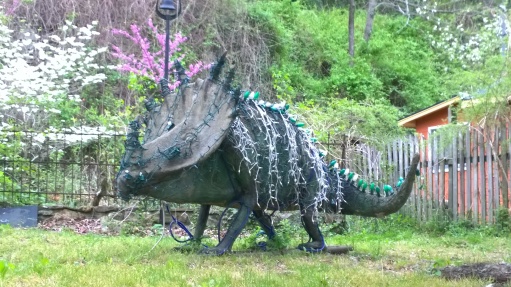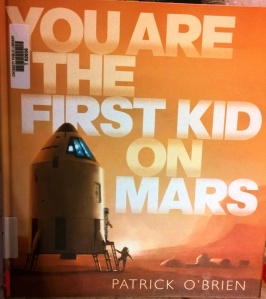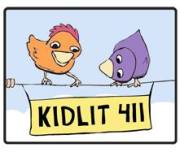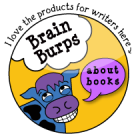What Will Float My Writing Boat in 2017?
My writing sunk in 2016.
I seemed to have dropped the ball long before the year ended. Or should I say dropped the oar. As far as writing goes.
I started out strong a year ago, joined 12×12 as a Silver member, was somewhat dutiful in Poets Garage critiques, and actually–thanks to a 2 week heavenly writing retreat at Writers Colony of Dairy Hollow–produced a new picture book in a series I’m doing. I even wrote and handmade two fiction storybooks for my granddaughter.
But sometime back in May my writing like began to take on water. I can’t seem to put my fingers now on just what went wrong then. Looking back it’s a fog. But my production slumped. Not a poem or story or even an idea came out of me. My most promising picture book project didn’t get any serious attention from me. In spite of inspiring webinars, I didn’t feel inspired. No ventures into real writing. Thus, no submitting to publishers or pursuing of agents.
I struggled to bail and row, without any real success. Only feeble attempts here and there.
I have set out on a new commitment however to my writing.

At years end I had the chance for some real research … a keelboat trip down the Black River the week after Christmas. It was a dream of mine to experience some of the history I was writing about.
On day three, in a furious windswept and current-driven sweep around the outside of a high-bank river bend I hung onto the side of the cabin. I saw the bank approaching quickly from behind me and a snarl of a ragged incoming treetop ahead in our path. “Green hold, red ROW!” the helmsman hollered attempting to turn us back toward midstream. I prayed the limbs wouldn’t snatch me off the boat and hang me dangling above frigid rolling water as my peers disappeared downstream. The angry treetop raked across the cabin planks and grabbed at my back. And I wondered: Why am I not writing about this?
Survival, in life and writing, can be motivating.
Early in January I invested in 12×12 as a Gold member. I printed and signed a challenge from Pat Miller (my NF4NF leader) to set manageable goals for the month. Today I committed in writing to my Poets Garage promise in black and white (email). Tomorrow I am going to apply for the March Madness competition. I’ve scheduled a March trip for further research on my historical fiction work in progress.
And somehow I believe, along this journey, the spurring on I get from our community of writers will propel me thru my writing year–like wild 40 mph wind gusts and choppy rushing water carries a keelboat into adventures unknown and dreamed about.
So happy new year. May you retrieve all your oars and easily repair your broken rudders. And above all, hang on tight. I hope in your writing year you will find a crew like mine.
A Thinking Break

In the middle of ‘productivity’ on a writing retreat, you still need breaks. Your brain needs a breather. A stretch of sorts, just like your muscles and your butt.
My walks around Eureka Springs have been the best of breaks, more than I could have asked for: gentle crisp early spring air, blooming trees and gardens so bright they look painted, and surprises around corners.
That combination stirs the poet in me, and I’ve written several pieces that I am very happy with, between my work sesssions on non-fiction and the prairie project, which is my first goal for this retreat.
Sunday afternoon I walked downtown and back. A creature I’d not seen before in a garden spot on Spring Street appeared and posed a question for me. He dared to stretch my mind. Here’s the result:
If They’d Had Lights
If they’d had lights,
they would not be extinct.
I thought so when I saw him,
the stegosaurus made of stone,
bedecked with strands of mini-lights,
a string of large bulbs, smartly laid,
strung where his plates would be.
If they’d had lights,
survival would have been
a matter of the brightest,
the dusty air no sweat for them,
despite the skies made dark and dim
when asteroidal impact made
their forage hard to see.
If they’d had lights,
they still would roam the earth.
I wonder, though, if whether
an allosaur’s electric grin,
a flashy T-rex, or his kin
might blinking, blind us, and between
their teeth, extinct, we’d be.
© 2016, Damon Dean
Treat of a Retreat…
I am on cloud nine… or ten, or more! I am in the hills of Eureka Springs, Arkansas.
Last summer I applied to the Writer’s Colony at Dairy Hollow for a residency fellowship called the Moondancer Fellowship. This fellowship is a paid two-week residency for writers about nature and the outdoors. Since I’ve been in a non-fiction mode for two years, and have several projects I’m working on about nature, and since my poetry is almost 80% about nature, I thought I might be a good match. I sent samples, a bio, and explained my works in progress.
summer I applied to the Writer’s Colony at Dairy Hollow for a residency fellowship called the Moondancer Fellowship. This fellowship is a paid two-week residency for writers about nature and the outdoors. Since I’ve been in a non-fiction mode for two years, and have several projects I’m working on about nature, and since my poetry is almost 80% about nature, I thought I might be a good match. I sent samples, a bio, and explained my works in progress.
I was notified last September that my application was not selected, but was asked to apply again next year, and that I had been a 2nd choice. Naturally I was a bit disappointed, but still honored to be considered (tho I’m not sure there weren’t only two applicants! )
In January I got a call from the director, Linda Caldwell. The selected recipient from Boston had taken a job as a television broadcast writer, and could not attend.
“Would you like to attend in 2016 as our 2015 Moondancer fellow?”
I remained calm. I replied professionally. I gratefully accepted. I hung up. I jumped on the couch, bounced off the ceiling, and sprung out the door. I was ecstatic.
Nothing enhances my writing more, in either productivity or purpose, than being on a retreat. I find that like many writers, my life (my good life–I’m not complaining) gets in the way. I really feel like writing is a calling to me, but the necessities of life impose and hinder and detract, and my writing (which for years I treated as a ‘hobby’) suffers.
Several years ago I took a week for a retreat at White Oak Lake State Park, in a camper. I was refreshed deeply, and in that week wrote some poetry and developed some ideas for projects that couldn’t have happened in the normal stream of my life. That poetry, those projects, still hold momentum from the full attention I gave them during that week.
I fully expect what I take home from my stay at the Colony will have the same benefit.

So I begin my fellowship stay today, for two weeks, April 1-15, when I get to write write write write write nap write write write walk write write write nap. And then eat. Dinners are provided by a wonderful chef named Jana, and they are superb. This is the off season and there are no other writers here during my stay. Usually there are several residents, who gather for dinner and talk about their art and craft. That is an experience I also want in my writing journey.
During the week I get to serve the community by working with students in a nearby school, so I’m working on poetic elements on two Thursdays. Also, I get to meet with kids at a coffeehouse after school since I’m here the first Tuesday of the month with their creative writing teacher, Kenzie Doss. She holds an event called ‘The Buzz’ which usually brings in middle school and high school students. I plan to lead them in a discussion on ‘personification’ and engage them a related writing activity.
I’m thrilled, and just had to share the news. They’ve initiated April to celebrate National Poetry Month, and we hung poems with some other poets and kids at the Basin Springs Park downtown on the Poet-tree.
Visit the Colony page, and take a look at the wonderful gift I’ve been given. It is a treasure of a retreat for me, and for my writing.
Taking a Pause…
We are having a retreat, and taking a pause in the normal routines of our lives, as we camp in north Arkansas between visits with family.
While browsing
(I know, it’s not real camping if you have internet, but hey…let’s call it modern camping)
I ran across this month’s post by Michele Heinrich Barnes, a poet friend who interviews poets monthly who offer to the readers a challenge.
This month’s guest was the wonderful Amy Ludwig Vanderwater, whom I admire for her work and her inspirational sharing and teaching.
Her challenge was to write about something small, which we see everyday and give little thought to. Sitting here in the camper while it rains all over Arkansas I thought of various small things, but one came to mind that I encounter every day, and somewhat miss since I am away from home, apart from my dogs. I admit, the poem might be weather-inspired, with the pat-pat-pat-pat-pat of raindrops on the camper top providing a nap-inducing music.
Here’s the result, I hope you like it.
Paws
First,
tap-tap-tap-tap-tap
on morning’s bedroom floor,
impatience played
between long stretches, yawns.
Then
scratch-scratch-scratch-scratch-scratch,
the tugs at bedside covers
pull my sheets,
beg for me to peek
—at least one eye—
to see a wide-eyed plea.
Next
rat-tat-tat-tat-tat
claws celebrate surrender.
Though reluctant,
I arise and stumble to the backyard door
in early-dark,
accompanied by staccato joy.
A caesura, fermata—a pause.
Then,
my slow wake,
my long-drawn-out capitulated yawn
breaks short at
sudden rhythms,
scrape-scrape-scrape-scrape-scrape,
wood-scarring pleads
upon the door.
I let them in,
all four percussion-gifted paws.
My day begins
with music
to my
ears.
© Damon Dean, 2016
Struggling and Signed Up Again…
I was wavering.
I was stammering, stuttering, and stuck.
No, I wasn’t struggling with a picture book idea. I was struggling with the idea of picture book ideas.
I was looking at my upcoming month–our trip up north, our up-ended schedule, the uprooting possible if we sell our house…and the downside of joining PiBoIdMo this year. (That’s Picture-Book-Idea-Month, a challenge to find an idea every day for 30 days.)
The chances of getting 30 ideas for 30 days was intimidating. But then I read the pre-PiBoIdMo posts, and a few choice guest posters pointed out how, in reality, it only takes one inspiration, one idea, one blink of a light bulb, to make a book.
The idea may come from anywhere. It may take time to germinate. But it won’t germinate until it’s planted and that takes a choice, a determination, a decision.
So I’ve signed up again…and even if my participation is minimal, it won’t be a loss.
It will be a gain.
in-Habit-able Haiku
A book on mini-habits I purchased during last year’s NF4NF conference in Texas is finally being read. I don’t remember who pointed me to this book…perhaps Kristi Holl. Maybe Pat Miller, Kristen Fulton, Steve Swinburne, or Peggy Thomas. But thanks to whomever did. (And to the author, Stephen Guise, Mini-Habits)
The purchase was digital. Yes–out of sight, out of mind–until this year’s conference drew near and prompted me to open the file in my Kindle app.
The read has resulted in my rising early in small, minute increments. Most days now before daylight. I spend time on the deck with coffee, the tablet, the dogs, and time to read scripture and pray.
I decided, after a few days of that mini-habit, to add one other small mini-habit to the habit. Mini-writes. Something small, each day. Something brief, easily achievable. Something easy, delightful, and something that would let me say, “I wrote today.”
The perfect candidate? Haiku.
In perfect form? Nope. Perhaps I took a few liberties, which a poet easily and guiltlessly can, before daylight.
But I wanted to share my small successes, and gathered the first eleven here.
Let me know if you have a favorite. I hope you enjoy them.
MORNING HAIKU
morning mists grow thin
as words appear, revisions
of my fading dreams
POEM-A-CUP
long night dozes off
and day wake finds me smiling
sipping on my thoughts
STRETCHING
loosening haiku
my freedom from the form is
aromatic java
SKYOUETTE
yawning pink and blue
a waking summer sky hosts
a ballet of bats
DREAM WIND
sad willow stands still
but maple’s leaves flutter in
her own dreams of wind
PECKER
pecker taps a pine
gray flakes of bark flutter down
and beetles cower
QUIET FAST
fog muffles morning
bats hang hungry in the trees
breakfast past hearing
STILL LIFE
I chatter chatter
to scampering squirrels above
who pause on tree limbs
UNPAVED
garden path disturbed
bricks tilted by the restless,
but slow, toes of trees
BREAKFAST MEANS
a single robin
hopping on a vast green lawn
seeks a worm’s demise
IRREGARDED BUSH
a haiku or two
in hand is worth a dozen
pantoums in the bush
(c) Damon Dean, 2015
A Tanka for Spring
Worm Moon whispers sighs
frowns, blows down through her pursed lips.
These frost-cold snow clouds–
unwelcomed winter cousins–
stay. No dirt stirs tonight.
© Damon Dean 2015
I am participating this month in a challenge hosted by Michelle Heidenrich Barnes at TodaysLittleDitty.com . The challenge issued from her guest author Margarita Engle is to write a tanka on any topic.
But specifically Engle asks us to “Seek the resonance that enters a poem only when it is touched by the stillness of nature.”
14:14 PB ELEMENTS – Frog Song – WORD PLAY
My last book for the 14:14 Challenge is not your ordinary ‘ribbit.’
 Frog Song
Frog Song
author Brenda Guiberson
illustrator Gennady Spirin
(c) Henry Holt & Co. LLC
(1,375 words, AR Reading Level 4.5)
Lush in the color and detail of Spirin’s illustration, this picture book is also rich in language with Guiberson’s lyrical approach to the lives of frogs. Like most good non-fiction works, the focus is narrowed to a particular aspect, in this case, frog song.
First, what kid–any age between 2 and 62–wouldn’t grab a book with a cover like this off the shelf and hop to the first cozy lily-pad to read about a big red frog? I did.
Furthermore, consider the opening page, full of word play:
Frogs have a song for trees, bogs, burrows, and logs. When frogs have enough moisture to keep gooey eggs, squirmy tadpoles, and hoppity adults from drying out, they can sing almost anywhere. Croak! Ribbit! Bzzzt! Plonk! Brack! Thrum-rum!
Every spread shares interesting facts from the lives of normal to unusual frogs. Some I’ve never heard of. Some I know well.
Their songs are printed in various fonts, splayed across colorful habitat backgrounds.
Word play features such as onomatopoeia, assonance, metaphor, alliteration, consonance…all are in place in this book. After all, it’s a book about swamp music. Sound is the main character.
Kids will love the uncommon behavior of some of these amphibians, but will also have fun ‘performing’ the various calls that appear on every page. I did.
This book is an exemplary model of how story elements such as word play can be used to elevate non-fiction above the simplicity of bare facts. If you find this book, I hope you’ll enjoy it as much as I did.
(See a list of other reviewers’ posts in Christi’s latest post at Write Wild.)
14:14 PB ELEMENTS – The Beatles Were Fab – CHARACTER
I remember the day, coming home from church. Dad turned on the radio in our red Ford Galaxy 500. We sat there in our skinny black ties, hearing music we’d never heard before. “Who’s that?” we asked. “Just a bunch of long haired hippies the communists are sending over to ruin our country,” Dad said. It was our first exposure to “The Fab Four.”
The Beatles Were Fab
authors Kathleen Krull
& Paul Brewer
illustrator Stacy Innerst
(c) 2012,
Harcourt Children’s Books
(1,924 words, AR Reading Level 4.8)
This is a fun book between jelly-bean end pages. Rich illustration by Stacy Innerst accompanies the story of the Fab Four, those famous boys from Liverpool who changed the sound of modern music with not only their tunes, but their characters.
After reading this story, I wonder if they’d had to depend only on music, whether they would have had the impact they are famous for. Television and radio, through the the power of airwaves, revealed so much of their individual character as their popularity spread. Character is what made them ‘fabulous’ as much, if not more, than their music.
Krull and Brewer reveal who they were in this delightful account, with a focus on their humor and their ability to make people laugh.
“From the time they got together as lads until they became superstars, the Fab Four made music, made history, and made people laugh.”
The story shows their determination, their hard work, their confidence. Always, it seems, flavored by humor. When they first performed for the Royal Family,
“John invited the main-floor audience to clap along. Then he peered up at the dignified royal family in the box seats. ‘And the rest of you, if you just rattle your jewelry.” Everyone giggled–even the Queen Mother.”
Two spreads offer questions reporters would often ask, a page each for John, Paul, Ringo, and George. Their quick answers show their wit:
Q: How did you find America?
Ringo: We went to Greenland and made a left turn.
Certainly the ‘fab’ in fabulous describes much about the Beatles, but it’s more than just the music, and this books makes that clear for a generation of children who have no idea who they really were, and what they meant to my generation and musical history.
Only a few years after listening to my first Beatles song on the car radio, I had full-sized posters of those long-haired hippies on my bedroom walls, and I was strumming their tunes on my own guitar.
And, of course, I was smiling.
(See a list of other reviewers’ posts in Christi’s latest post at Write Wild.)
14:14 PB ELEMENTS – You Are the First Kid on Mars – DIALOGUE
Space–the final frontier.
You Are The First Kid on Mars
author & illustrator
Patrick O’Brien
(c) 2009, G. P. Putnam’s Sons
(1,944 words, AR Reading Level 5.0)
One thing that launched some thought when I opened this book was the jacket-flap description of this Patrick O’Brien book as one of his ‘factual’ books. Having determined to focus my participation in this year’s 14:14 Challenge on non-fiction, I pulled this book out immediately. (Besides. I’m a Trekkie, I loved Star Wars, and I’ve been a science fiction fan for half a century.)
I opened this book to look for story elements. The first element that’s noticeable in both title and text is the point of view.
YOU. This book is second person point of view, and the whole adventure is directed at imagination, engaging the reader from the first sentence. I supposed then the element, by broad definition, is DIALOGUE.
While one book might tell a story from the third person point of view as an outsider, another might tell it from a first person point of view.
I think O’Brien matches the topic here (an imaginary, but fact-full future journey) by using second person point-of-view. YOU. The writer (or should I say the book?) is speaking to the reader, and explaining to reader just what an experience would be like.
“This book will tell you what would happen, and what you would do, if you were the first kid on Mars.”
(Emphasis mine.) Great pacing ensues, with the young astronaut leaving earth, boarding a spaceship from a space station, seeing Earth shrink and Mars grow larger, and landing on the red planet. But throughout, the reader is engaged in the experience:
“You feel the ship shaking and jerking, and you see flames shooting past the window. The Martian air is slowing you down. Then the flames stop and you are plummeting toward the surface.”
There’s much to learn and experience, from high mountains to deep canyons that exceed anything on earth. Each embedded picture shares facts about the trip, the Mars environment, the ways people adapt to live on the planet.
But dialogue is the key element here, and effectively takes the reader on a journey to “boldly explore where no kid has gone before.”
(Meanwhile…how do you define “factual?” Is it a fact-based presentation based on an imagined experience? Should it be totally void of imagination, purely non-fiction? What is factual, and is it distinguishable from non-fiction in terminology?)
(See a list of other reviewers’ posts in Christi’s latest post at Write Wild.)









